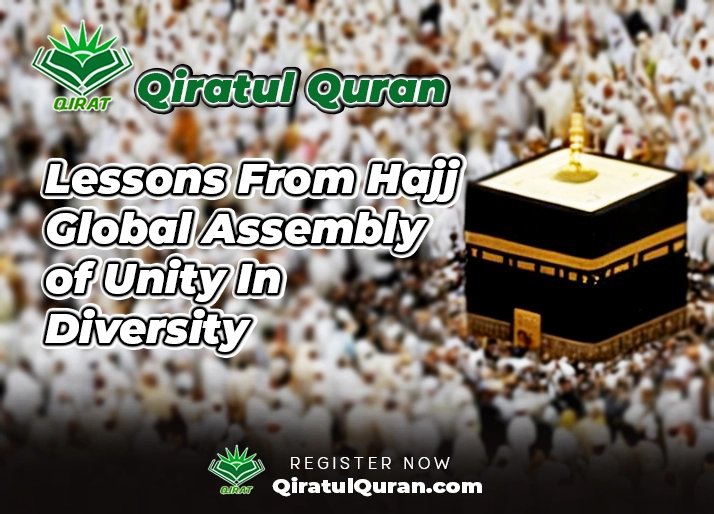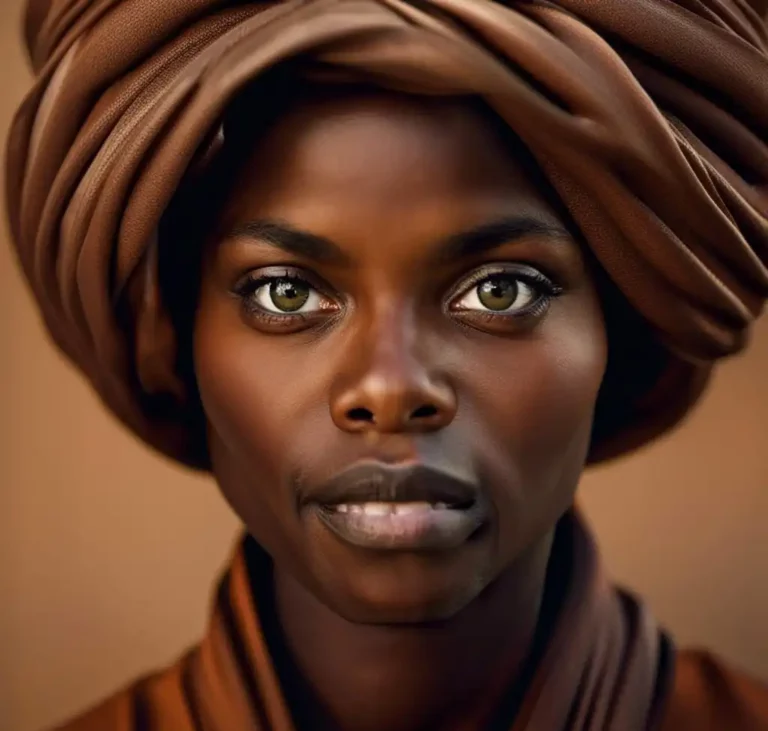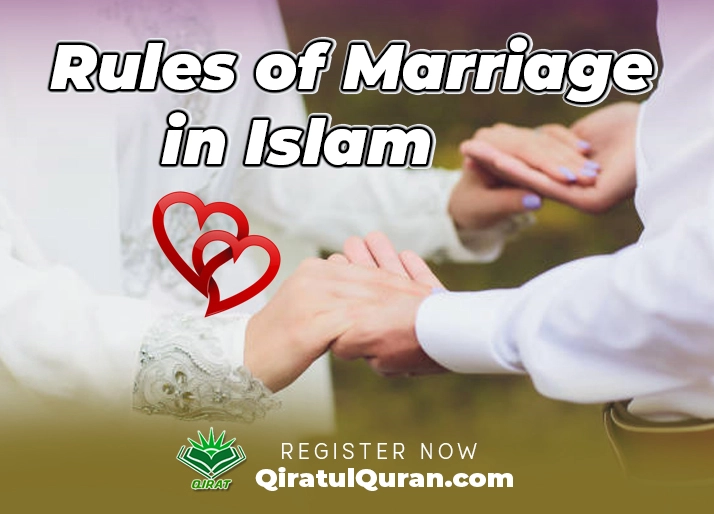Lessons From Hajj: The Hajj pilgrimage to Mecca is one of the five pillars of Islam that all able Muslims are required to complete at least once in their lifetime. Every year, millions of Muslims from all over the world gather in Mecca during the last month of the Islamic calendar for the annual Hajj pilgrimage. It is considered the largest annual gathering of people anywhere on earth.

The lessons that can be learned from the Hajj are profound and significant. At its core, Hajj exemplifies the concept of unity in diversity, bringing together Muslims of every race, ethnicity, nationality, culture, social status, and school of Islamic thought. There are many valuable lessons that both Muslims and non-Muslims can reflect upon from this global assembly of faith, unity, equality, and brotherhood.
Embodying the Essence of Unity in Diversity
The Hajj is a remarkable display of unity and diversity. During Hajj, distinctions of race, class, or wealth are erased as all pilgrims dress in simple white garments called ihram. The pilgrims unite in spiritual ceremonies aimed at gaining closeness to God, following in the footsteps of the Prophet Muhammad and his companions.
Uniting People of All Nations and Ethnicities
People from all nationalities unite in Mecca during Hajj. They are joined together in worshipping the One God, following the same rituals. All national, ethnic, or cultural differences disappear. Malcolm X famously described this transformative aspect after completing his pilgrimage:
“There were tens of thousands of pilgrims, from all over the world. They were of all colors, from blue-eyed blondes to black-skinned Africans. But we were all participating in the same ritual, displaying a spirit of unity and brotherhood that my experiences in America had led me to believe never could exist between the white and non-white.”
The racial harmony and lack of prejudice he witnessed left a profound impact on Malcolm X. Hajj’s ability to unite diverse peoples remains one of his most remarkable qualities.
Bringing Together All Social and Economic Backgrounds
During Hajj, there is also no distinction based on social status or economic background. The rich and poor, royalty and commoners, the elite and the impoverished all stand and bow together side by side. All worldly possessions and luxuries are left behind.
Pilgrims wear simple garments, avoid perfume or scented soaps, do not cut their hair or nails, and survive without modern conveniences for their journey. Through this sacrifice and focus on humility and spiritual purification, Hajj represents the equality of all humans before God.
Exemplifying Key Principles and Values for Humanity
The rituals and experiences of Hajj promote values and principles that are universally beneficial for all of humanity. These values align with ideals found at the core of faith traditions around the world. Hajj provides a living model for how to achieve these ideals.
Pursuit of Peace and Reconciliation
During Hajj, fighting of any kind or even raising one’s voice in anger is prohibited. Pilgrims are in a state of mindfulness, focused on worship and reflection. By putting aside differences and forgiving others, Hajj represents a peaceful gathering of humanity.
The Talbiya, a prayer recited by pilgrims, includes the poignant line: “Here I am, O God, Here I am at your command. You have no partner. Here I am. Indeed all praise and blessings are Yours, as are dominion and sovereignty.” This line epitomizes the essence and purpose of Hajj – unity under One God.
Cultivating Equality and Humility
As pilgrims shed outward differences in dress and status, Hajj represents the concept of human equality and humility before God. All pilgrims engage in the same rituals side by side, following the example of Prophet Muhammad S.A.W. Hajj also commemorates the life of Abraham and Hagar and their sacrifice and courage in the face of trials.
Pilgrims re-enact Hagar’s search for water for her son Ishmael after Abraham left them in the desert. This reminds us that life’s hardships can build faith and character. Overall, the shared challenges and rituals of Hajj instill a spirit of humility, harmony, and human solidarity.
Promoting Understanding and Coexistence Between Islam and Other Faiths
While Hajj is an Islamic tradition, its core principles and values resonate across faiths and traditions. As a result, Hajj represents an opportunity to build bridges of understanding between Muslims and those of other faith backgrounds.
Parallels with Principles in Christianity and Judaism
The moral values embedded in Hajj share commonalities with Christianity and Judaism. These Abrahamic faiths promote social ethics like charity, self-discipline, duty to God and community, and justice. These faiths also share scriptural histories about Abraham and pilgrimage rituals.
Hajj rituals at sites like the Kaaba and Mount Arafat are part of the same geographical landscape where Abraham, Hagar, and Ishmael lived and worshipped God thousands of years ago. This can foster a spirit of interfaith appreciation and harmony.
Dialogue to Build Cooperation and Counter Ignorance
Interfaith leaders point out that Hajj represents a powerful opportunity for education and bridge-building across faiths. Many parallels and shared values exist when comparing Hajj rituals and pilgrimages in faiths like Christianity, Judaism, Sikhism, and Hinduism.
Recognizing this opportunity, Saudi Arabia invites delegations of Christian, Hindu, Buddhist, and Jewish leaders to observe Hajj every year. Additionally, programs like the Hajj Seminar bring together global interfaith leaders to promote cooperation through dialogue and understanding. This provides a positive model of people of faith countering ignorance and fear in communities.
Reflecting on Hajj as a Catalyst for Global Progress
Beyond its significance for Muslims, Hajj holds invaluable lessons for all of humanity in building a more ethical, egalitarian, and unified global society. Reflecting on the powerful symbolism and underpinnings of Hajj can inspire us to apply these principles in our contemporary world.
A Vision for Universal Human Progress
The Hajj serves as a living model of what universal human progress could look like – people of all nations and backgrounds united in harmony for the greater good. The spirit of Hajj represents ethical values that are universal – justice, equality, compassion, reconciliation, and living in balance with nature.
Seeing millions gather in Mecca should motivate people of faith and conscience everywhere to build similar multicultural and ethical communities, locally and globally. We must rise above differences and work for the common good of all people in our society.
Overcoming Prejudice and Promoting Ethics
The absence of prejudice based on race or social status at Hajj provides an inspiring model for countering prejudices in our own societies. Returning pilgrims strive to internalize this ethic of equality and put it into practice in their communities. Malcolm X is one powerful example of how Hajj can transform attitudes and ethics.
More broadly, we must challenge negative stereotypes based on religion, race, ethnicity, gender, or cultural background that fuel misunderstanding and hatred in societies worldwide. We can highlight the shared values across cultures that bring people together in respect, empathy, and cooperation.
The Hajj is an unparalleled global gathering that epitomizes unity in diversity. Its narrative and underpinnings carry profound lessons for building cross-cultural harmony and human progress worldwide. Reflecting on Hajj can inspire people of all faiths and backgrounds to build a world of greater justice, equality, and peace.
Note: To take Online Quran Classes Look into our More Branded Quran Courses.
Qiratul Quran Branded Quran Courses
- Noorani Qaida Course
- Intensive Quran Course
- Quran Memorization Course
- Maqamat Course
- Arabic Grammar Course





